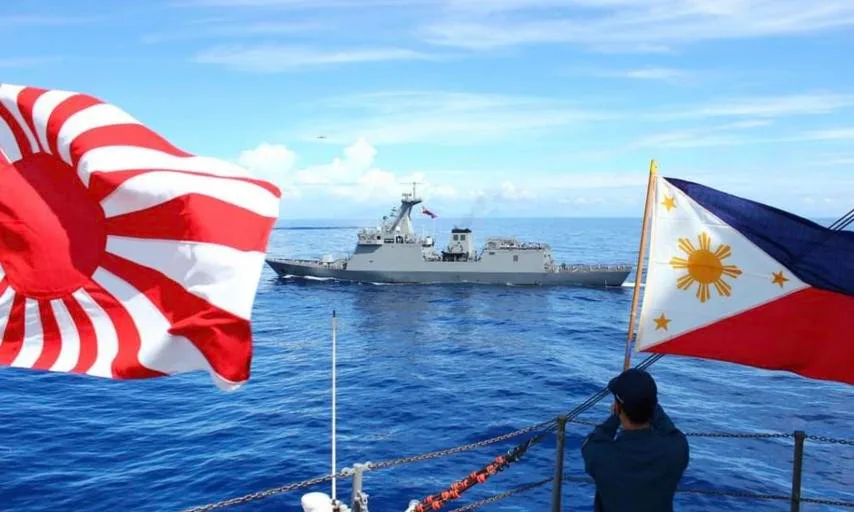
Tokyo committed to strengthening its security relationship with the Philippines during Japanese Prime Minister Fumio Kishida’s visit last weekend.
While in Manila, Kishida inked several agreements with Philippine President Ferdinand Marcos, Jr., including the first-ever transfer of defense aid under Japan’s new Official Security Assistance (OSA) framework. This aid program aims to transfer non-lethal equipment, such as patrol boats and radar systems, to the armed forces of “like-minded countries.”
Through the first OSA program, the Armed Forces of the Philippines will receive $4 million worth of coastal surveillance radars for the Philippine Navy, unlike previous Japanese assistance that gave radars to the Philippine Coast Guard.
The radars are a “vital addition to the AFP’s maritime defense capabilities and will bolster our ability to monitor and protect our extensive coastline, ensuring the safety and security of our seas,” Chief of Staff Gen. Romero Brawner said in a statement.
A Japanese Ministry of Foreign Affairs release on the OSA agreement also touched on the importance of enhancing the Philippines’ Maritime Domain Awareness in relation to monitoring the “important sea lanes” in the South China Sea and Luzon Strait.
The Japanese-Philippine relationship is in a “golden age,” Kishida said in his address to a joint session of the Philippine Congress. He further highlighted his country’s commitment to upholding the rule of law and freedom of the seas by detailing the new security and defense cooperation component of Japan’s Free and Open Indo-Pacific (FOIP) Strategy. Through the provision of maritime and aerial monitoring capabilities, Japan wishes to “extend efforts” that ensure the safe use of the sea and air.
Kishida also touched on Japan’s efforts to help the Philippines’ Air Domain Awareness capabilities through the supply of air surveillance radars. In 2020, Tokyo won a $103 million contract to provide the Philippine Air Force with four radars. Japan confirmed that the first of the four radars had been deployed in the Philippines ahead of Kishida’s visit. Of the four radars, three will be placed on Luzon, with one facing the South China Sea and another covering the strait between the Philippines and Taiwan.
In the backdrop of Kishida’s trip to the Philippines is the latest South China Sea incident between the Philippines and China, which involved a collision between Philippine and Chinese vessels during a resupply mission to BRP Sierra Madre (LT-57) at Second Thomas Shoal.
Tokyo has played an important role in building up Manila’s Maritime Security capabilities, most notably with its transfer of patrol vessels to the Philippine Coast Guard. Loans through the Japan International Cooperation Agency’s Maritime Safety Capability Improvement Project have provided a total of 12 Multi-Role Response Vessels (MRRV). These vessels are frequently deployed in the South China Sea, especially during BRP Sierra Madre’s resupply missions.
In a press release, the Philippine Coast Guard stated that Japan will be financing five more Teresa Magbanua-class MRRVs for the agency’s fleet. These patrol vessels are based on the Japan Coast Guard’s Kunigami-class and are the largest in the Philippine Coast Guard’s fleet. In his visit to the agency’s headquarters, Kishida boarded the leadship of the class, which was built at Mitsubishi Heavy Industries’ Shimonoseki Shipyard.
Both Tokyo and Manila committed to starting negotiations on a Reciprocal Access Agreement, a security pact that facilitates troop access for the purpose of training activities and exercises. Currently, neither country has a treaty with the other for this, which means that only limited contingents and observers could attend exercises on Philippine or Japanese soil. The Philippines has Visiting Forces Agreements with the United States and Australia, while Japan has Reciprocal Access Agreements with the United Kingdom and Australia.
Kishida also highlighted the growing cooperation between Washington, Manila and Tokyo as one of his closing points in his address to the Philippine Congress. Within the last year, the three countries have been deepening their cooperation through trilateral diplomatic and military exchanges.
“In the South China Sea, multilateral cooperation to protect the freedom of the seas is underway,” Kishida said referring to the recent participation of the Japan Maritime Self-Defense Force Exercise Sama Sama and the first-ever trilateral Coast Guard exercise Kaagapay in June. “Through these efforts, let us protect the maritime order, which is governed by laws and rules. Not by force.”





